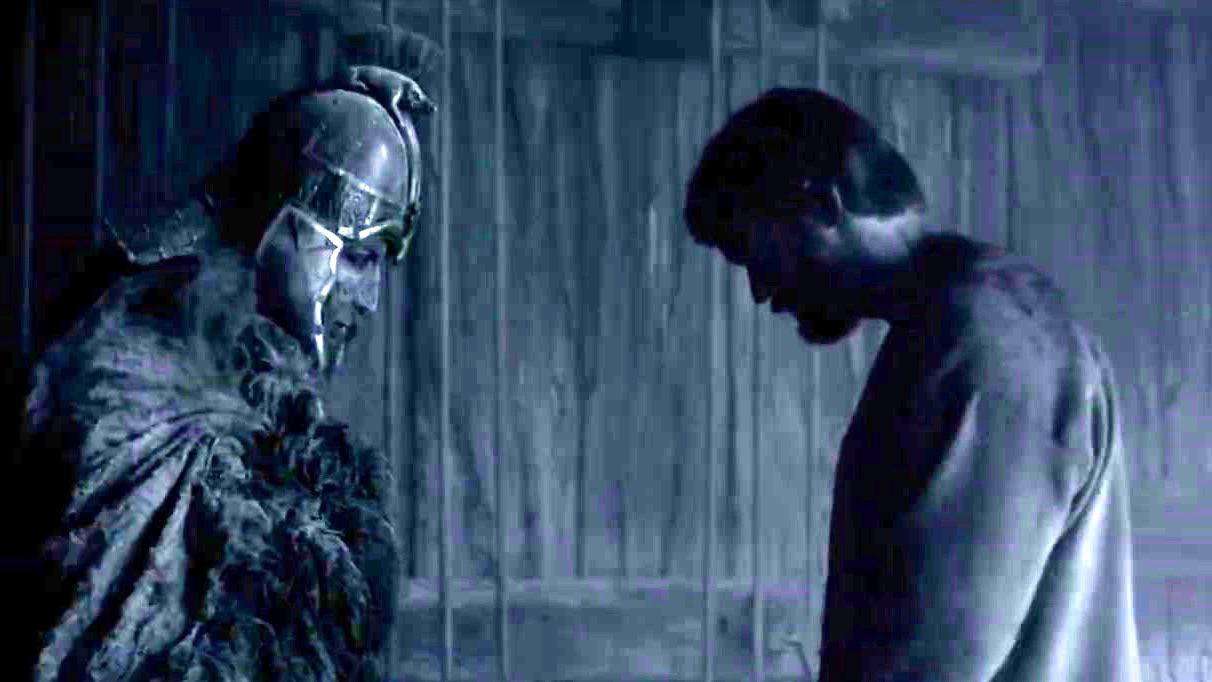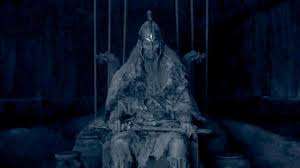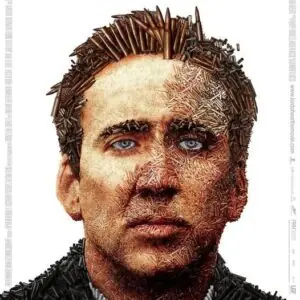Runtime: 137 minutes
Robert Eggers’ The Northman is a ferocious, myth-soaked Viking epic that fuses historical grit with psychological horror, primal vengeance, and pagan mysticism. It is simultaneously brutal and poetic, grounded in history yet elevated by myth. A vengeance tale born from the blood and mud of early medieval Scandinavia, The Northman brings a raw physicality and hallucinatory aesthetic to the age-old Hamlet myth it revives.
At its core, The Northman is a retelling of the Scandinavian legend of Amleth, the very tale that inspired Shakespeare’s Hamlet. The story is simple and archetypal: a prince seeks to avenge the murder of his father by his uncle. But Eggers does not tell it simply. He drenches the narrative in Norse mythology, authentic cultural practices, and a visceral intensity that pulls the viewer into a world where fate, violence, and the supernatural are inseparable.
Plot Overview
The film opens in the 9th century. Young Amleth (played as a boy by Oscar Novak) witnesses the brutal murder of his father, King Aurvandil (Ethan Hawke), by his uncle Fjölnir (Claes Bang). Forced to flee, Amleth vows revenge: “I will avenge you, Father. I will save you, Mother. I will kill you, Fjölnir.” These words become a mantra, echoed throughout the film as the now-grown Amleth (Alexander Skarsgård) transforms into a hulking berserker warrior.

Years later, Amleth learns that Fjölnir has lost his kingdom and now lives as a farmer in exile in Iceland. Disguising himself as a slave, Amleth infiltrates his uncle’s homestead, biding his time to fulfill his destiny. Along the way, he forges a connection with Olga (Anya Taylor-Joy), a Slavic sorceress who offers both love and a spiritual counterbalance to his violent quest.
Brutality and Beauty
Eggers’ first two films, The Witch and The Lighthouse, established him as a filmmaker obsessed with historical authenticity, language, and atmosphere. The Northman expands that vision on a grander, more action-driven scale without sacrificing the director’s meticulous detail and mythological resonance.
The violence in The Northman is savage and unrelenting. Battle scenes are choreographed with unflinching realism—mud, blood, and fire combine in sequences that feel more ritualistic than cinematic. One of the standout sequences involves Amleth and his raiding party storming a Slavic village in a single, unbroken take that plunges the viewer into the chaos and terror of medieval warfare.
But within this brutality lies a strange beauty. Jarin Blaschke’s cinematography captures the Icelandic landscape in stark, otherworldly detail. Mountains loom like ancient gods. Fires dance in the dark like ancestral spirits. The visual language of the film often shifts into the surreal—visions of Valkyries, talking skulls, and shimmering trees of fate create a constant tension between the material and the mystical.
Performances and Characters

Alexander Skarsgård gives a career-best performance as Amleth. Towering, muscular, and emotionally raw, Skarsgård channels both the beast and the man, showing how vengeance consumes identity. His physical transformation is impressive, but it’s his internal conflict—his glimpses of tenderness, hesitation, and pain—that give depth to an otherwise mythic figure.
Anya Taylor-Joy, as Olga, provides a much-needed emotional and intellectual counterpart to Amleth’s brute force. Her presence, ethereal yet grounded, symbolizes a different kind of power: cunning, spiritual, feminine. The chemistry between the two actors feels real, complex, and rooted in mutual respect rather than romantic cliché.
Nicole Kidman delivers a shocking and layered performance as Queen Gudrún, Amleth’s mother. Her character undergoes one of the most surprising shifts in the film, turning the familiar “damsel” archetype on its head. In one unforgettable scene, Kidman reveals hidden truths about her past and loyalties, completely reframing Amleth’s understanding of his mission—and ours.
Claes Bang, as Fjölnir, avoids the trap of playing a one-dimensional villain. There’s a weariness and tragic quality to him. Though he committed a monstrous act, he does not rule through cruelty alone. The film subtly suggests that Fjölnir, too, is a man shaped by fate and burdened by consequence.
Themes: Fate, Violence, and the Cycle of Vengeance

The Northman is deeply concerned with the concept of fate. The Norse worldview, in which destiny is inescapable and the gods are indifferent, shapes every character’s decisions. Amleth’s journey is not one of choice, but of submission to a preordained path. He is less a man than an instrument of vengeance, forged by trauma and ritualized violence.
This fatalism raises uncomfortable questions: Is vengeance ever just? Can cycles of violence be broken, or are they carved into the bones of civilization? The film offers no easy answers. Instead, it immerses us in a worldview where revenge is both sacred duty and moral corruption. The closer Amleth gets to fulfilling his oath, the more hollow it feels. Olga offers an alternative—a life away from violence—but Amleth ultimately chooses destiny over freedom.
Eggers doesn’t glorify violence, even as he depicts it in operatic detail. The film’s brutality is always contextualized by grief, loss, and existential dread. The final confrontation, staged in the heart of a volcano, feels less like a triumph than a tragic inevitability.
Historical Authenticity and Mythic Storytelling
As with his previous work, Eggers collaborated with historians, linguists, and cultural consultants to recreate the world of the 9th-century North. Old Norse language, spiritual rituals, music, costumes, and daily life are rendered with obsessive precision. The result is a film that feels both alien and immersive, transporting the viewer into a time when the gods lived in the wind, and omens spoke louder than law.
Yet The Northman is not a documentary. It is a mythic retelling, a dreamlike reconstruction of Viking lore that draws as much from Beowulf and The Odyssey as it does from historical record. The film’s greatest achievement lies in this balancing act—its ability to ground itself in anthropology while soaring into mythic grandeur.
Conclusion
The Northman is a brutal, mesmerizing, and deeply ambitious film. It’s not for the faint of heart—its pacing is deliberate, its violence unflinching, its worldview grim. But for those willing to surrender to its spell, it offers a cinematic experience unlike any other: primal, operatic, and deeply human.
Robert Eggers has crafted a Viking epic that avoids Hollywood gloss in favor of something older, stranger, and more profound. In a landscape dominated by formulaic blockbusters, The Northman stands out as a work of singular vision and savage beauty. It doesn’t just depict myth—it feels like myth, etched in fire, blood, and ice.





